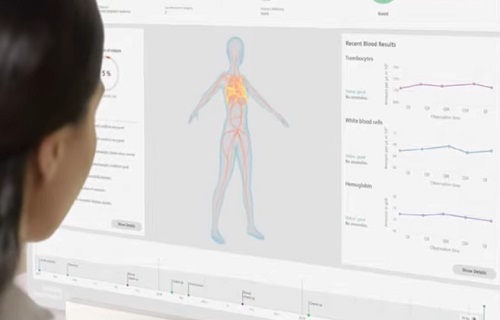What is Clopixol?
Clopixol (zuclopenthixol) is a medication used to treat mental health conditions like schizophrenia and other psychotic disorders. It helps reduce symptoms such as hallucinations, delusions and agitation by balancing chemicals in the brain.
Dosage Forms and Strengths Of Clopixol
- Oral Drops: 20 mg/ml concentration administered in doses starting at 20 mg per day (20 drops). Acoording to the patient’s response, dose can be increased by 10-20 mg every 2-3 days and up to maximum single dose of 40 mg and a total daily dose not exceeding 150 mg.
- Film-Coated Tablets: Available in strengths of 2 mg, 10 mg, and 25 mg.
- Injectable Forms:
- Clopixol Acuphase: Contains zuclopenthixol acetate at a concentration of 50 mg/ml and used for rapid control of acute psychotic episodes.
- Clopixol Depot: Contains zuclopenthixol decanoate at a concentration of 200 mg/ml, intended for maintenance therapy with typical injection intervals of every two weeks.
Pharmacokinetics of Clopixol
- Bioavailability: About 49% when taken orally.
- Protein Binding: About 98% and indicating a high degree of binding to plasma proteins.
- Half-Life:
- Oral Administration: About 20 hours.
- Intramuscular Depot Injection: About 19 days. Its allow for less frequent dosing.
Mechanism of Action of Clopixol
Clopixol acts as an antagonist at dopamine D1 and D2 receptors and as well as serotonin 5-HT2 receptors for contributing to its antipsychotic effects.
Global Approval of Clopixol
Clopixol is approved for medical use in several countries,; Australia, Canada, Ireland, India, New Zealand, Singapore, South Africa and the UK. But it is not approved for use in the United States yet.

What Are The Side Effects Of Clopixol?
Common Side Effects of Clopixol
- Sedation/Drowsiness (20% of patients):
- This is one of the most frequently reported side effects. It may impact daily activities and patients are often advised not to drive or operate heavy machinery until they understand how the medication effects them.
- Extrapyramidal Symptoms (EPS) (10-20% of patients):
- This is movement disordersÜ
- Tremors: Involuntary shaking, especially in the hands.
- Rigidity: Stiffness in muscles.
- Bradykinesia: Slowness in initiating and executing movements.
- Akathisia: Restlessness and an urge to move.
- These symptoms could be distressing and may require adjustment of dosage or additional medications to counteract the effects.
- This is movement disordersÜ
- Weight Gain (10% of patients):
- Weight gain is a concern with many antipsychotics. It is not just a cosmetic issue but can cause to metabolic changes; increasing the risk of diabetes, cardiovascular diseases and other health complications.
- In some studies, weight gain can be as high as 5–10 kg (11-22 lbs) over a year of treatment.
- Dizziness and Orthostatic Hypotension (5-10% of patients):
- Orthostatic hypotension (a drop in blood pressure when standing up) can cause to dizziness or fainting. This is generally more common at the beginning of treatment and may improve with continued use.
- Dry Mouth and Constipation (5-10%):
- These anticholinergic side effects can lead to discomfort and affect daily life but they tend to resolve over time as the body adjusts to the medication.
Serious and Less Common Side Effects of Clopixol
- Neuroleptic Malignant Syndrome (NMS) (<1% of patients):
- This is a life-threatening condition;
- High fever,
- Muscle rigidity,
- Altered mental status (confusion, agitation),
- Autonomic dysfunction (sweating, unstable blood pressure)
- NMS is rare but requires immediate medical intervention and discontinuation of the medication and intensive care.
- This is a life-threatening condition;
- Tardive Dyskinesia (TD) (<1% of patients):
- Tardive dyskinesia is a serious movement disorder involving involuntary, repetitive movements. Especially of the tongue, lips and face. It can happen after prolonged use of antipsychotic medications.
- TD is irreversible in some cases but earlier recognition and discontinuation of the drug can prevent further progression.
- Cardiovascular Effects (5-10%):
- Tachycardia (rapid heart rate) could be seen in higher doses or with depot formulations.
- QT interval prolongation (a heart rhythm disturbance) has been reported. It is more common in patients with existing heart conditions or those taking other medications that effect the heart.
- Seizures (<1%):
- Although rare Clopixol can lower the seizure threshold and making seizures more likely, especially in patients with a history of epilepsy.
- Prolactin Elevation (5-15% of patients):
- Clopixol can increase prolactin levels and cause to side effects in below;
- Menstrual disturbances in women
- Galactorrhea (milk production)
- Sexual dysfunction (impotence, reduced libido)
- Monitoring of prolactin levels may be necessary in some patients.
- Clopixol can increase prolactin levels and cause to side effects in below;
- Liver Function Changes (Rare):
- Elevated liver enzymes and other signs of liver dysfunction have been observed in some patients. This is monitored with blood tests during treatment.
- Severe Allergic Reactions (Very Rare):
- Symptoms may include rash, itching, swelling and difficulty breathing. Immediate medical attention is necessary if an allergic reaction is suspected.
Other Considerations About Clopixol
- Metabolic Side Effects: Antipsychotics like Clopixol are associated with an increased risk of metabolic syndrome; high blood sugar, high cholesterol and hypertension. Long term monitoring of these factors is crucial.
- Prolonged Use: Prolonged use (especially at higher doses) increases the risk of side effects like TD, EPS and metabolic disturbances.
Management of Side Effects of Clopixol
- Dose Adjustment: Dose reductions or switching to another antipsychotic may be necessary in cases of EPS or sedation.
- Co-Therapy: Sometimes medications to counteract EPS (like anticholinergics) are prescribed alongside Clopixol.
- Monitoring: Regular visits to hospital for monitoring of heart function, weight, blood sugar and liver function are recommended.
You can find a comparison of Schizophrenia medications from every angle to help you make the best decision about which is best for you;

Advices For Clopixol Users
1. Follow Your Prescribed Dosage and Schedule
- Adhere to the prescribed dosage: Don’t adjust the dose or frequency of your medication without consulting your doctor.
- Take it regularly: Try to take Clopixol at the same time every day for consistency whether it’s the oral form or the depot injection,.
- If you miss a dose contact your doctor for instructions. Never double up on doses.
2. Monitor for Side Effects
- Stay alert to side effects: Stay alert for common side effects like drowsiness, dizziness, weight gain and movement disorders (tremors, rigidity). Report any new or unusual symptoms to your doctor.
- Keep track of changes in mood or behavior: Clopixol effects your brain chemistry; changes in mood, anxiety levels or unusual thoughts should be addressed promptly.
3. Regular Health Check-Ups
- Frequent doctor visits: Have regular follow up appointments to assess your response to the medication. Your doctor will likely monitor for side effects such as weight gain, blood sugar, cholesterol levels and liver function.
- Blood tests: Regular tests may be needed to monitor liver function and prolactin levels. Especially if you’ve been on Clopixol for a long time.
4. Watch for Movement Problems
- Be aware of extrapyramidal symptoms (EPS): These symptoms; tremors, rigidity and stiffness are common with antipsychotics like Clopixol. Inform your doctor if you experience these symptoms early for they can be managed with dose adjustments or additional medications.
5. Be Cautious with Activities
- Avoid driving or operating machinery if sedated: Clopixol can lead to drowsiness and dizziness, especially in the first few days or when the dose is adjusted. Wait until you understand how the medication effects you before engaging in activities that require full alertness.
- Stand up slowly: To avoid dizziness or fainting because of low blood pressure (orthostatic hypotension), stand up slowly especially after lying down or sitting for extended periods.
6. Weight and Diet Management
- Maintain a healthy diet: Be mindful of potential weight gain associated with Clopixol. Focus on a balanced diet and regular physical activity to help manage your weight.
- Monitor your weight: Regularly weigh yourself and inform your doctor if you notice significant weight changes.
7. Alcohol and Drug Interactions
- Limit alcohol consumption: Alcohol can increase the sedative effects of Clopixol and cause to heightened drowsiness and dizziness. It’s best to avoid alcohol or drink in moderation.
- Avoid other sedatives: Combining Clopixol with other medications that have sedative effects (e.g., benzodiazepines) can increase the risk of excessive sedation and other side effects.
8. Psychological and Emotional Support
- Mental health support: Clopixol is primarily used for managing psychotic disorders so ongoing therapy and counseling (e.g., cognitive behavioral therapy) are important parts of your treatment.
- Reach out for help: If you experience any emotional distress; feelings of hopelessness, agitation or suicidal thoughts, reach out to your doctor immediately.
9. Pregnancy and Breastfeeding
- Consult your doctor if pregnant or planning to become pregnant: The safety of Clopixol during pregnancy is not fully established and it may pass into breast milk. If you’re pregnant or breastfeeding consult your doctor to weigh the risks and benefits.
10. Keep Your Doctors Informed
- Inform all doctors about your medication: If you are prescribed any other medications (including over-the-counter drugs or supplements) let your doctors know you’re taking Clopixol. There may be drug interactions that could effect your treatment.
- Update your provider on your condition: If there are changes in your health; such as heart problems, liver issues or new psychiatric symptoms, inform your doctor promptly.
11. Be Prepared for Long-Term Treatment
- Understand that Clopixol may be a long-term treatment: According to your condition, you may need to take Clopixol for an extended period and possibly years. Stay in close communication with your doctors to manage any long-term side effects and adjust the treatment as necessary.
12. Do Not Discontinue Abruptly
- Do not stop taking Clopixol suddenly: Stopping the medication abruptly can cause to withdrawal symptoms or a return of psychotic symptoms. Always follow your doctor’s advice on tapering off the medication if discontinuation is necessary.
We wish healthy and happy life to you. Also you can find details about schizophrenia in below:

